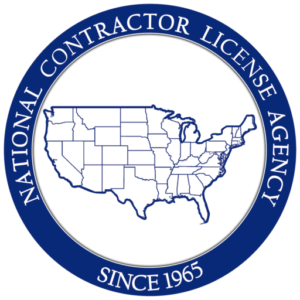 License Reciprocity in the U.S. Construction Industry: Facilitating Opportunities and Simplifying Procedures
License Reciprocity in the U.S. Construction Industry: Facilitating Opportunities and Simplifying Procedures
The United States’ construction industry is an essential component of the country’s economy, and construction professionals need to obtain licenses and certifications to establish successful businesses. However, obtaining licenses in multiple states can be a tedious and costly process. License reciprocity is a concept that aims to simplify this process and enable construction professionals to operate across state borders without the need for multiple licenses. In this article, we will explore license reciprocity in the U.S. construction industry, its benefits, and how construction professionals can navigate this complex process.
What is License Reciprocity?
License reciprocity in the U.S. construction industry refers to the agreements established between different states that authorize construction professionals with valid licenses in one state to have their licenses recognized in another state. Additionally, this process allows construction professionals to work in multiple states without the need to obtain additional licenses, which saves time and money.
Benefits of License Reciprocity in the U.S. Construction Industry: License reciprocity provides numerous benefits to construction professionals in the United States, including:
Flexibility and Mobility
License reciprocity enables construction professionals to travel between different states effortlessly, which broadens their business prospects and allows them to seize new opportunities. Moreover, they can also diversify their clientele and mitigate risks associated with regional economic downturns.
Reducing Redundancy
Construction professionals can save time and money by transferring their licenses between states, eliminating the need to obtain multiple licenses. Additionally, they can save on fees, examinations, and administrative tasks involved in applying for licenses in different states.
Consistency in Quality and Standards
License reciprocity ensures that construction professionals maintain high work quality and adhere to industry standards.
Furthermore, these accords are usually established between states with comparable licensing prerequisites, fostering trust and professionalism within the construction sector.
Increased Job Opportunities
Construction professionals can operate in multiple states without constraints; consequently, this provides them with more job opportunities. This increased access to job markets may lead to higher employment rates and financial stability for professionals.
Enhanced Collaboration
License reciprocity allows for better collaboration between construction professionals across state lines, thereby nurturing a sense of community and knowledge exchange within the industry.
Navigating License Reciprocity
While license reciprocity offers numerous advantages, it is crucial to note that not all states have reciprocity accords in place. Construction professionals must research the specific requirements and agreements for the states they wish to operate in.
Additionally, they may need to maintain their licenses and complete any required continuing education to ensure their credentials remain valid across different states.
Conclusion
License reciprocity in the U.S. construction industry streamlines the licensing process, enabling construction professionals to operate across state borders and broaden their business prospects.Furthermore, by understanding the concept and benefits of license reciprocity, construction professionals can navigate this complex process and harness its potential to expand their businesses and contribute to the industry’s advancement as a whole.
If you would like any kind of assistance with your license portfolio, give us a call at 651-340-3233 or send us an email at info@nclamn.com. We look forward to working with you in the future!
Nick Forchette
Latest posts by Nick Forchette (see all)
- Upholding Integrity: The Crucial Role of Ethics in Contractor Licensing - July 1, 2024
- Top 10 Tips for Passing the Contractor License Exam - June 17, 2023








